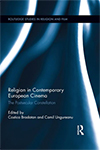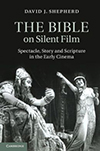- Author(s): Liat Steir-Livny
- When: 2015-08
- Where: Jewish Film & New Media: An International Journal
The politicization of the Holocaust has been reflected in Israeli culture from the late 1940s in cinema, literature, theater, and poetry; in the last several decades, it has also been depicted on Israeli television. Most of the representations of the Holocaust in the first decades of Israel’s existence were dramatic. But from the 1990s onward, Israelis also began to address the subject through satire. The case studies in this article focus on the satirical skits performed on episodes of The Chamber Quintet (Hahamishia Hakamerit; Matar Productions, Channel 2-Tela’ad, Channel 1, 1993–1997) and Wonderful Country (Eretz Nehederet; Keshet Productions, Channel 2-Keshet, 2003–2014). Diverging from arguments that these humorous skits addressing the Holocaust disrespect the Holocaust and its survivors, this article maintains that they instead articulate the powerful position the Holocaust holds as a constituting event in the consciousness and identity of younger generations in Israel.






